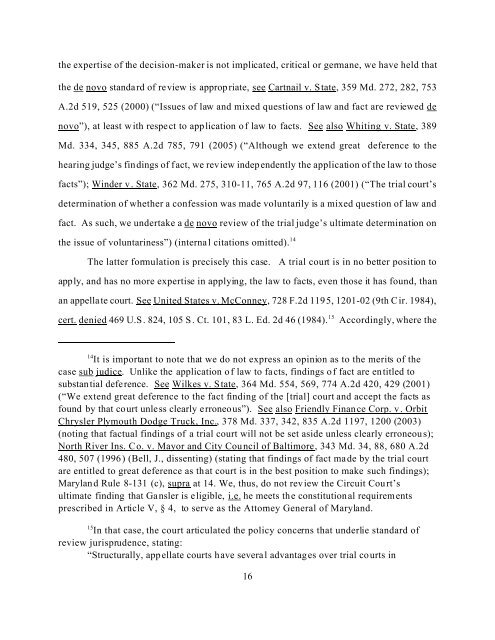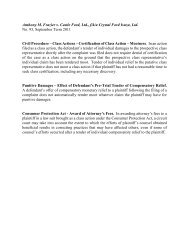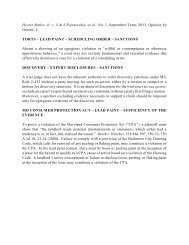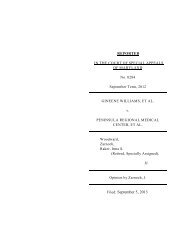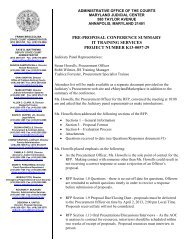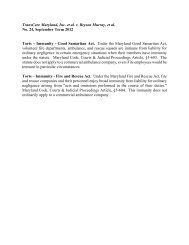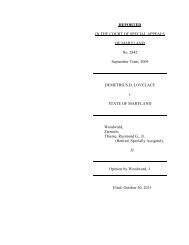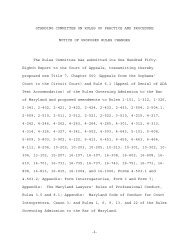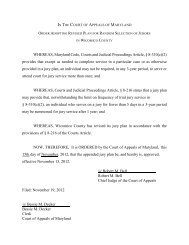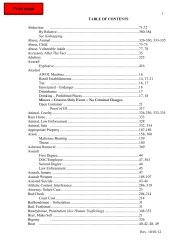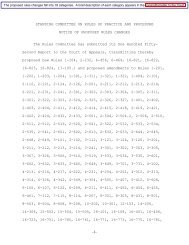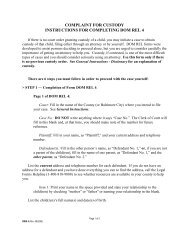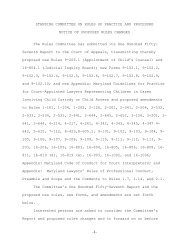Liddy v. Lamone - Maryland state court system
Liddy v. Lamone - Maryland state court system
Liddy v. Lamone - Maryland state court system
Create successful ePaper yourself
Turn your PDF publications into a flip-book with our unique Google optimized e-Paper software.
the expertise of the decision-maker is not implicated, critical or germane, we have held that<br />
the de novo standard of review is appropriate, see Cartnail v. State, 359 Md. 272, 282, 753<br />
A.2d 519, 525 (2000) (“Issues of law and mixed questions of law and fact are reviewed de<br />
novo”), at least with respect to application of law to facts. See also Whiting v. State, 389<br />
Md. 334, 345, 885 A.2d 785, 791 (2005) (“Although we extend great deference to the<br />
hearing judge’s findings of fact, we review independently the application of the law to those<br />
facts”); Winder v. State, 362 Md. 275, 310-11, 765 A.2d 97, 116 (2001) (“The trial <strong>court</strong>’s<br />
determination of whether a confession was made voluntarily is a mixed question of law and<br />
fact. As such, we undertake a de novo review of the trial judge’s ultimate determination on<br />
the issue of voluntariness”) (internal citations omitted). 14<br />
The latter formulation is precisely this case. A trial <strong>court</strong> is in no better position to<br />
apply, and has no more expertise in applying, the law to facts, even those it has found, than<br />
an appellate <strong>court</strong>. See United States v. McConney, 728 F.2d 1195, 1201-02 (9th Cir. 1984),<br />
cert. denied 469 U.S. 824, 105 S. Ct. 101, 83 L. Ed. 2d 46 (1984). 15 Accordingly, where the<br />
14 It is important to note that we do not express an opinion as to the merits of the<br />
case sub judice. Unlike the application of law to facts, findings of fact are entitled to<br />
substantial deference. See Wilkes v. State, 364 Md. 554, 569, 774 A.2d 420, 429 (2001)<br />
(“We extend great deference to the fact finding of the [trial] <strong>court</strong> and accept the facts as<br />
found by that <strong>court</strong> unless clearly erroneous”). See also Friendly Finance Corp. v. Orbit<br />
Chrysler Plymouth Dodge Truck, Inc., 378 Md. 337, 342, 835 A.2d 1197, 1200 (2003)<br />
(noting that factual findings of a trial <strong>court</strong> will not be set aside unless clearly erroneous);<br />
North River Ins. Co. v. Mayor and City Council of Baltimore, 343 Md. 34, 88, 680 A.2d<br />
480, 507 (1996) (Bell, J., dissenting) (stating that findings of fact made by the trial <strong>court</strong><br />
are entitled to great deference as that <strong>court</strong> is in the best position to make such findings);<br />
<strong>Maryland</strong> Rule 8-131 (c), supra at 14. We, thus, do not review the Circuit Court’s<br />
ultimate finding that Gansler is eligible, i.e. he meets the constitutional requirements<br />
prescribed in Article V, § 4, to serve as the Attorney General of <strong>Maryland</strong>.<br />
15<br />
In that case, the <strong>court</strong> articulated the policy concerns that underlie standard of<br />
review jurisprudence, stating:<br />
“Structurally, appellate <strong>court</strong>s have several advantages over trial <strong>court</strong>s in<br />
16


